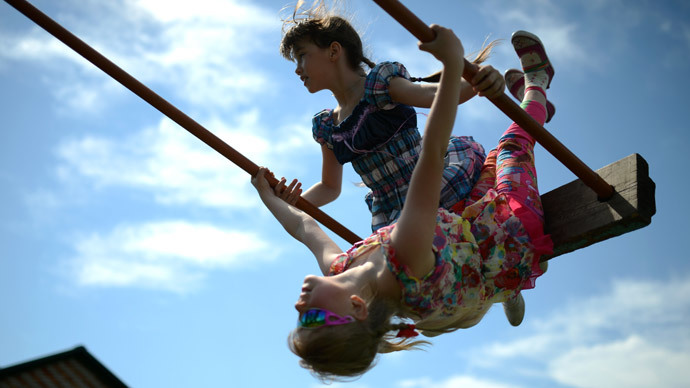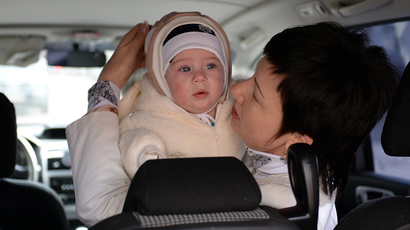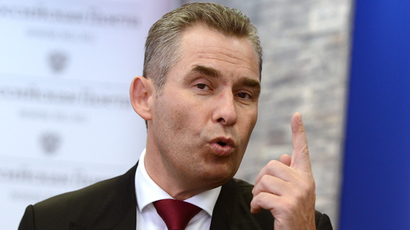Russia to ban citizenship change for adopted children

Russian MPs intend to ban changing of citizenship of adopted Russian kids over fears that NGOs specializing in adoptions might send children to the United States via third countries.
“Despite the fact that we are no longer sending orphans for adoption to US families, the USA has not given up on its policy of purchases of children. If we fail to impose a legal ban on the shipping of children across the ocean, they will transport them through third countries,” State Duma deputy Yevgeniy Fyodorov (United Russia) has told the mass circulation daily, Izvestia.
“The growing number of registered foreign NGOs [specializing in adoptions] is a direct proof that the transit of Russian children to the United States is growing,” the politician added.
According to the Justice Ministry, after Russia introduced the so called Dima Yakovlev law – the legislative ban on adoption of Russian children by US citizens or by proxy of US organizations – four NGOs specializing in adoptions have been registered in the country – three Italian and one American, bringing the total number of such groups to 53.
Fyodorov reported that in connection with this fact he and other Russian MPs had prepared a set of amendments to the current adoptions ban that would restrict the transfer of Russian children from adoptees to other families. The MP also proposes a ban on renouncing Russian citizenship for an adopted orphan until the child comes of age.
Russian officials intend to switch the adoption practices so that they are regulated by intergovernmental agreements between Russia and other nations. Presently there are only two such agreements – with Italy and France, and an agreement with Spain is expected to be signed soon. However, adoption in other countries is still allowed, with the exception of the United States and also countries that allow same sex marriage.
One of the recently registered Italian NGOs strongly refuted the allegations that its purpose was to organize the orphans’ transit to the United States. The executive director of the Associazione Adozioni Alfabeto group added that his organization intended to continue Russian operations and was not involved in any conflict between Russia and Europe.
At the same time, a number of Canadian NGOs specializing in adoptions admitted that if Russia introduces the new ban they would have to wrap up their operations in the country. A representative of the World View Adoption Association group, Anna Chukanova, told Izvestia that her Canadian bosses were reluctant to maintain the Russian office as they were convinced that the Canadian authorities would not sign any guarantees that adopted kids from Russia would not end up in a same sex family.
Russian authorities imposed a complete ban on adoptions of Russian children in the US on January 1, 2013, in reply to US law enforcers’ extreme reluctance to cooperate in cases of maltreatment and even murder of Russian children by their adoptive US parents. The law was named after Dima Yakovlev - a two-year old Russian boy who died in July 2008 after his adoptive father left him locked in a car for eight hours in hot weather. The father was tried for manslaughter, but was acquitted, which caused a wave of outrage among Russian diplomats, mass media and the public.
In February 2013, Russia also banned the adoption of Russian children by same-sex couples, as well as by unmarried citizens of countries where same-sex marriage is legal.
Critics of these moves, both in Russia and abroad claim that the restrictions would deprive many Russian kids of a chance to find a family, and that many victims were disabled or sick children, with little chance of adoption at home.
The Russian authorities replied that the country should not rely on foreign aid in this issue and introduced a national program of aiding domestic adoptions, which included simplified conditions for would-be adoptees, state aid and tax breaks to families with adopted children.
In December 2013, Prime Minister Dmitry Medvedev told reporters that in the first nine months of the year the number of kids who found new families inside the country grew by 5,000 compared to the whole of 2012.














